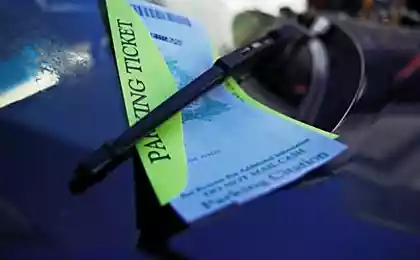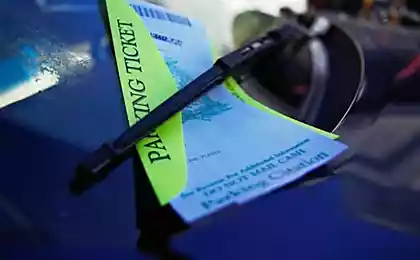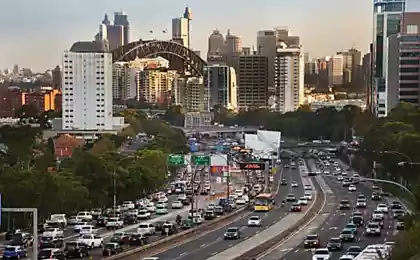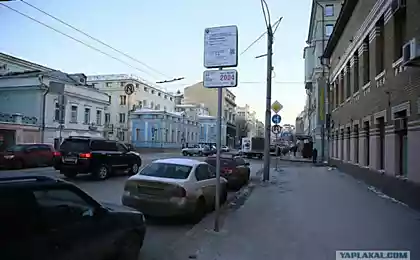1088
What are the penalties and how to fight it
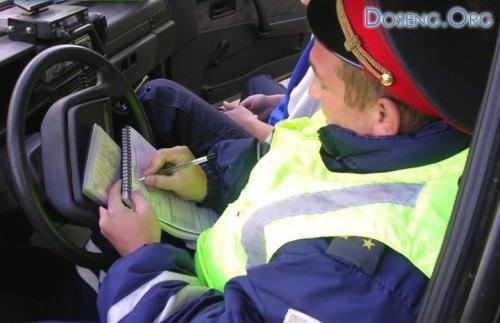
An article in the Journal of Guidance for the September 2008
This article will focus on all that concerns the payment of fines, liability for failure to pay fines, methods of avoiding payment of fines, etc.
According to para. 1, Art. 32.2 of the Administrative Code administrative fine must be paid by the person bringing to administrative responsibility, not later than thirty days from the date the decision on the imposition of an administrative fine in force or from the date of expiry of the term of deferred payment or installment.
According to para. 1.1 Art. 29.10 and n. 1, Art. 32.3 of the Administrative Code of the Russian Federation in the decision or in the decision-receipt of data, among other information must be specified on the recipient penalty required under the rules of filling in the settlement documents for the transfer of the amount of the administrative penalty.
In the absence of this information in the decision or in the decision-receipt you can optionally write a complaint to revoke the decision, it does not meet the requirements of the Administrative Code, or application to the authority which has issued, judgment or decision-receipt to clarify details for the payment of a fine .
By virtue of para. 1, Art. 30.1 against the decision issued by an official (eg traffic police inspector or chief of traffic police department) is fed to a higher authority, a higher official or in the district court where the proceedings or in the decision-receipt; the decision handed down by the judge - to a higher court.
In addition to complaints about the cancellation of the order or decree, the receipts can submit a complaint against the officer violating the rights and freedoms of citizens in the proceedings of an administrative offense. In this case, the lack of details for payment - a violation of para. 1.1 Art. 29.10 or p. 1, Art. 32.3 of the Administrative Code of the Administrative Code. The complaint officer made the decision or the decision-receipt violation can submit a superior officer or the prosecutor's office.
According to para. 1, Art. 31.5 of the Administrative Code of the Russian Federation under the circumstances, as a result of which it is impossible in a timely manner to pay a fine judge, body, the official who made the decision, may postpone the execution of the decision for a period of one month. And if you pay the fine does not permit the financial situation on the basis of para. 2, Art. 31.5 of the Administrative Code to pay an administrative fine may be installments for up to three months.
For payment by installments for payment of fines should contact the authority which made the decision or the decision-receipt of a statement, which sets out the grounds on which you can not pay the fine and ask for deferment of payment.
When calling the traffic police, for example, when making registration procedures with cars, when receiving pass inspection or refund or exchange of a driving license, require payment of unpaid fines. These actions are illegal traffic police. Penalty fines engage bailiffs. If you encounter such a situation, it is necessary to appeal to higher authorities or the prosecutor's office. But in most cases, if the traffic police say that his actions were illegal and you will be their appeal, no one to insist on payment of the fines would not.
Paragraph 4 of Art. 32.2 of the Administrative Code according to which, a copy of the document confirming the payment of an administrative fine should be sent to the judge, the authority official who made the decision - repealed. Currently, the receipt of payment of fine is not necessary to send to the authority which made the decision. But in view of inconsistencies in the data exchange between the banks and the traffic police have recommended to the receipt of payment of fines to yourself, because data indicate that a fine may be a long time to reach the traffic police.
According to Art. 32.2. Administrative Code if the fine is not paid within 30 days from the date of entry into force of the decree, the relevant materials are sent to the bailiff to recover the amount of the administrative penalty.
In practice, this article will not be executed. Materials bailiffs come to a long delay. If the fine is insignificant, it is likely that enforcement proceedings will not be initiated in due time.
The inspector, when you receive the case, to offer willingly pay the fine. In case of refusal of voluntary payment from you seek executive fee, which amounts to 7% of the amount of the fine. But in practice, police officers immediately send a receipt in which the amount of the fine were added besides to 7%. These actions are illegal bailiffs.
According to para. 1, Art. 31.9 of the Administrative Code of the Russian Federation decision to impose an administrative penalty is not enforceable if the ruling has not been enforced within one year from the date of its entry into force.
According to para. 7, Art. 21 of the Law "On Enforcement Proceedings" judicial acts and acts of other bodies and officials in cases of administrative offenses may be brought to execution within one year from the date of their entry into force.
This means that if a year later against you no enforcement proceedings, the police officers can not be with you to collect fines.
In the case of non-payment of a fine police officer may limit the travel abroad of the Russian Federation.
Restrictions on travel abroad of the Russian Federation is regulated by:
1 para. 1, Art. 67 of the Law "On Enforcement Proceedings" in the debtor within the prescribed period without justifiable reasons the requirements contained in the executive document issued on the basis of a judicial act or a judicial act, the bailiff is entitled to at the request of the claimant or its own initiative, decide on the temporary restriction on leaving the debtor of the Russian Federation,
2. n. 4 of Art. 67 of the law "On Enforcement Proceedings," if the executive document is not a legal act and not issued on the basis of a judicial act, the claimant or bailiff may apply to the court to establish the debtor time limit to leave the Russian Federation.
If the fine is imposed the court, the police officer may make an order to restrict travel abroad of the Russian Federation, but if the fine imposed traffic police, the police officer to limit the exit you must go to court with the appropriate application.
Responsibility for failure to pay the fine described in Art. 20.25 of the Administrative Code. According to Art. 20.25 of the Administrative Code failure to pay the administrative penalty within 30 days - punishable by an administrative fine of double the amount of unpaid administrative fine or administrative arrest for up to fifteen days.
In the event of non-payment of the fine within the time limit under paragraph. Article 5. 20.25 of the Administrative Code of the Russian Federation official of the federal executive power, its institutions, structural subdivisions or territorial authority, as well as a public authority empowered to carry out proceedings on administrative offenses (except bailiff), draw up a protocol on administrative offense under part 1 of Article 20.25 of the Code in respect of persons who have not paid the administrative fine. A copy of the protocol on administrative violation sent to the judge within three days from the date of preparation of this protocol.
According to Art. 4.5 Administrative Code ruling on the administrative case can not be made within two months from the date of the administrative offense. In the case of the institution of proceedings on administrative offense under Art. 20.25 of the Administrative Code for failure to pay the fine, the court has two months in which to draw you to administrative responsibility. It turns out that 10 days is given for entry into force of the decision (if it is not appealed) by 30 days to pay the fine = 40 days. 40 Days + 2 months attraction of art. 20.25 of the Administrative Code = 100 days. Total unpaid fines in the event of an offense comes to 41 days, ie, draw for non-payment can be at the end of 40 days, but not more than 100 since a ruling. After 100 days from the date of the judgment, held responsible for non-payment of a fine can not be.
If the DPS inspector checking database heard on the radio that you listed for unpaid fines, it is likely that you will draw on Art. 20.25 of the Administrative Code. If the meeting with the inspector occurred after hours or on the weekend, most likely, you will be detained and taken to the bullpen. According to para. 2, Art. 27.5 of the Administrative Code the person against whom the proceedings are conducted on an administrative offense, if necessary, to determine the identity or clarify the circumstances of the administrative offense may be subjected to administrative detention for a period not exceeding 48 hours. Although the explanation of the procedure of application of certain provisions of the Administrative Code (11.02.2008 №13 / 9-16) released by the Interior Ministry traffic police indicate that the detection of an administrative offense, punishable as an administrative arrest should be aware that administrative detention, as a measure to ensure proceedings of an administrative offense, may be applied in exceptional cases.
If the inspector drew up a report on the item. 20.25 of the Administrative Code and took you to court, you should remember the following:
1. If you paid a fine, but receipt can not imagine that a motion to postpone the case to provide receipts.
2. Based on the principle of presumption of innocence - Art. 1.5 of the Administrative Code. This means that in the case must be submitted to prove the non-payment of the fine. The answer from the bank testifying that on your behalf in the details specified in the order within a specified time payment has been received.
3. Printing from a database of traffic police on the unpaid fines you (alphabetical card) without application, entered into force resolution has no legal force and can not be used as evidence.
4. According to para. 4, Art. 1.5 of the Administrative Code of doubt about the guilt of the person brought to administrative responsibility, interpreted in favor of that person.
If the inspector DPS no decision has entered into force which do not have not paid a fine, then there is no reason for the excitement or the production of an administrative offense under Art. 20.25 of the Administrative Code.
In the case of misconduct DPS inspector can appeal to a court action or write a statement to the prosecutor.


